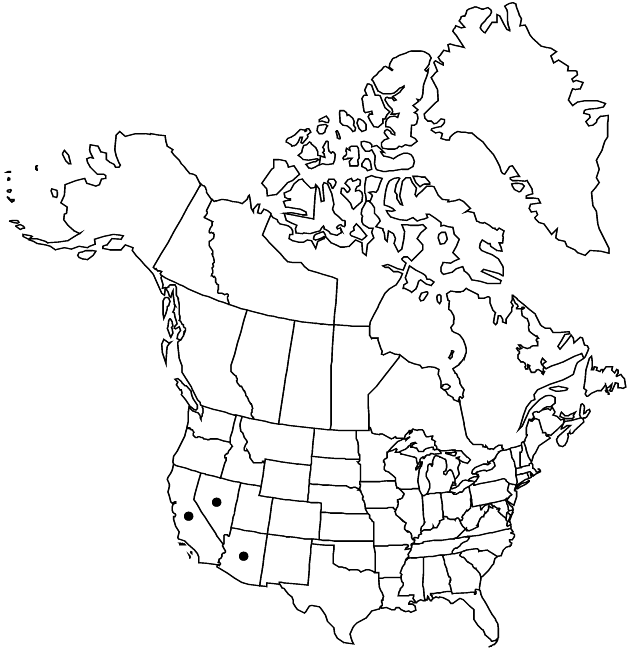Brickellia desertorum
Proc. Biol. Soc. Wash. 7: 68. 1892.
Shrubs, 80–200 cm. Stems intricately branched, densely puberulent, often glanddotted. Leaves opposite or alternate; petioles 1–2.5 mm; blades 3-nerved from bases, ovate, 3–13 × 4–14 mm, bases obtuse to truncate, margins crenate-serrate, apices obtuse, faces glanddotted and tomentulose to densely puberulent. Heads in paniculiform arrays. Peduncles 0–3 mm, glanddotted. Involucres cylindric, 8–10 mm. Phyllaries 20–24 in 4–7 series, greenish or brownish, 3–4-striate, unequal, margins scarious (apices acute to apiculate); outer broadly ovate (granular-puberulent), inner lanceolate to lance-linear (glabrous or tomentulose, often glanddotted). Florets 8–12; corollas white, 4.5–5 mm. Cypselae 2–3 mm, scabrous; pappi of 12–15 white, smooth or barbellulate bristles.
Phenology: Flowering Sep–Mar.
Habitat: Dry hillsides, outwash slopes, canyons
Elevation: 200–1400 m
Distribution

Ariz., Calif., Nev., Mexico, West Indies, Central America (to Nicaragua)
Discussion
Selected References
None.
Lower Taxa
"fine" is not a number.